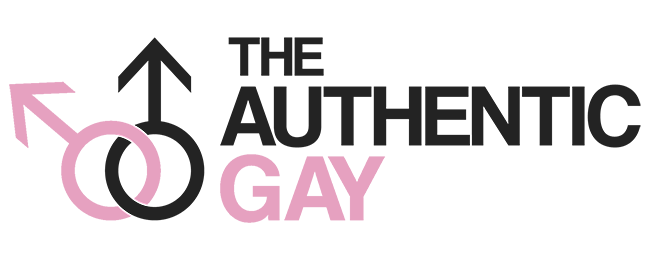The Social Media “Unfollow” and the Ex Boyfriend

During my closeted years in high school I met a boy with whom I had my first gay sexual experience. Despite a part of me that still wanted to repress these feelings, this experience granted me my first gay mutual attraction that would eventually evolve into an electrifying, tumultuous, overwhelming relationship that has forever changed me. It was with this person that I discovered love, obsession, heartbreak, thrilling passionate sex, and other emotions that exposed a vulnerability I didn’t know I had the capacity to possess.
Like many first relationships this one came to a disastrous end. Many years (and relationships) later I have slowly formed a pseudo-friendship with this ex. I no longer harbor any resentment toward him, nor do I have any remaining emotional or physical attraction for this person. I have loved other men after this first relationship, and I am now able to recognize and participate in healthy relationship habits as I continue to mature as a gay man.
Why then have I Unfollowed him on Facebook/Instagram/Social Media?
My first ex is not the only one I have remained friends with that I have unfollowed on social media. There is a small number of exes for whom I limit my social media exposure, all of whom played a significant role in my life.
For some reason I encounter negative thoughts and emotions when my ex’s Facebook status or Instagram photos are updated on my news feed. It is often the case that I haven’t talked to this person in months or had any recent negative interactions with them, but these social media posts and my resulting negative emotions drive me to over-analyze, read and judge the comments, click on other recent posts and photos, judge more, and effectively perpetuate a cycle of negativity that takes away from my time, energy, and happiness. I experience this phenomenon to varying levels dependent on the significance the relationship held in my life, and I am sure many of you experience this as well.
Is Continued Contact Healthy?
As we mature as gay men we learn how to mend wounds and heal relationships with our exes or intimate partners in ways that make our lives more functional. Especially if we anticipate unexpected contact, or our exes exist in the same social spheres and networks, it might be a smarter, more “civilized” move to learn how to act in cordial ways toward these people who might have hurt us in the past.
However, as we adapt and prepare ourselves for primary exposures to contact, it is imperative to take into account the impact secondary instances of exposure have on us. A status update, Instagram post, or tweet is a static piece of information that gives us time to evaluate and re-evaluate its meaning in relation to our wealth of knowledge about the one who posted it. Compared to in-person conversations, conversing over the phone, or even chatting on Facebook messenger, these static elements of information grant us the ability to revisit them, enabling a cycle of potentially obsessive negative thought.
Offline Secondary Contact Disrupts Emotional Recovery
The journal of Cyberpsychology, Behavior, and Social Networking published a study examining whether continued online exposure to an ex-partner’s Facebook page slowed post-breakup recovery and growth. Several self-related emotional factors were measured including self-esteem, attachment anxiety, and avoidance. These researchers hypothesized that “weak tie” relationships, like Facebook, allow access to offline content different from direct personal exposure. They predicted that exposure to this weak-tie contact would prolong relationship distress and inhibit recovery.
The results supported the hypothesis that this exposure would have negative effects on the participants of this study. More specifically, they found that monitoring an ex’s Facebook page contributed to lower personal growth, increased negative emotions, and poorer post-breakup functioning even when compared to strong-tie contact. When compared to the group that had altogether de-friended their exes, the results were also consistent, showing that the group that remained Facebook friends were slower in growth and recovery.
Do You Keep Tabs?
It’s inevitable that relationships that really impact the way we interact with our future partners create a bond between the two parties that is a painful attachment to shed. Many of us find ourselves favoriting our exes on Grindr, checking their Instagram profiles, and reading through the comments of their recent Facebook photo uploads to monitor who’s hitting on them or interacting with them most. Some of us don’t even have feelings for these exes anymore, but out of compulsion we feel the need to keep them within sight. To whatever varying degree this situation applies to you, recognize it, admit it, and consider what I am going to say next.
If this person plays an insignificant role in your current life and doesn’t align with who you are in this moment, consider unfollowing them on social media.
I don’t think it’s necessary to take the more dramatic step to unfriend them altogether, although if you think they wouldn’t notice, I urge you to do this as well.
We don’t need to be constantly reminded of their current whereabouts, what kind of vanilla protein shake they’re having for lunch, what muscle group they’re showcasing in their #transformationtuesday posts, or any other information that isn’t relevant to our immediate life. It is important to distinguish between those exes that are actually our friends and function with us in positive cohesive relationships from those we haven’t spoken to in two years that send us a Facebook friend request just to “catch up,” just to go back to not speaking with them for another several months.
I am not advocating for us to set out to create adversarial relationships with our exes that do not intentionally cause us direct harm or distress. I advocate for an awareness of how these passive, often subtle online interactions affect us. Pay attention to how you feel when you are confronted with these “weak-tie” contact points. If any of these feelings cause you anxiety or induce negative emotions – unfollow! Your sanity and happiness is worth it.
